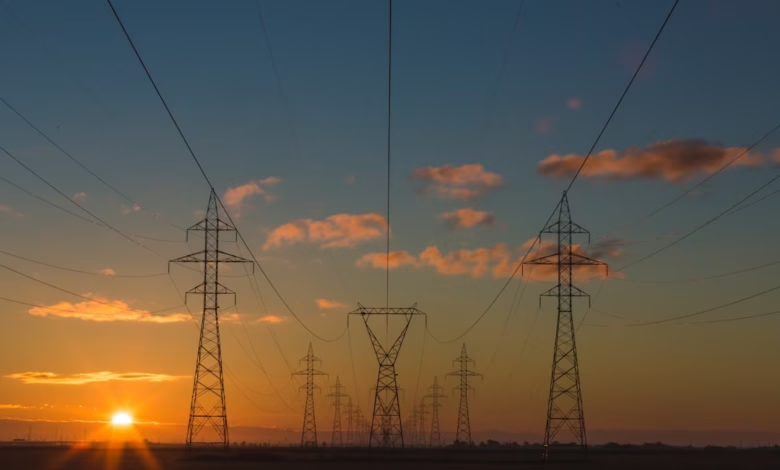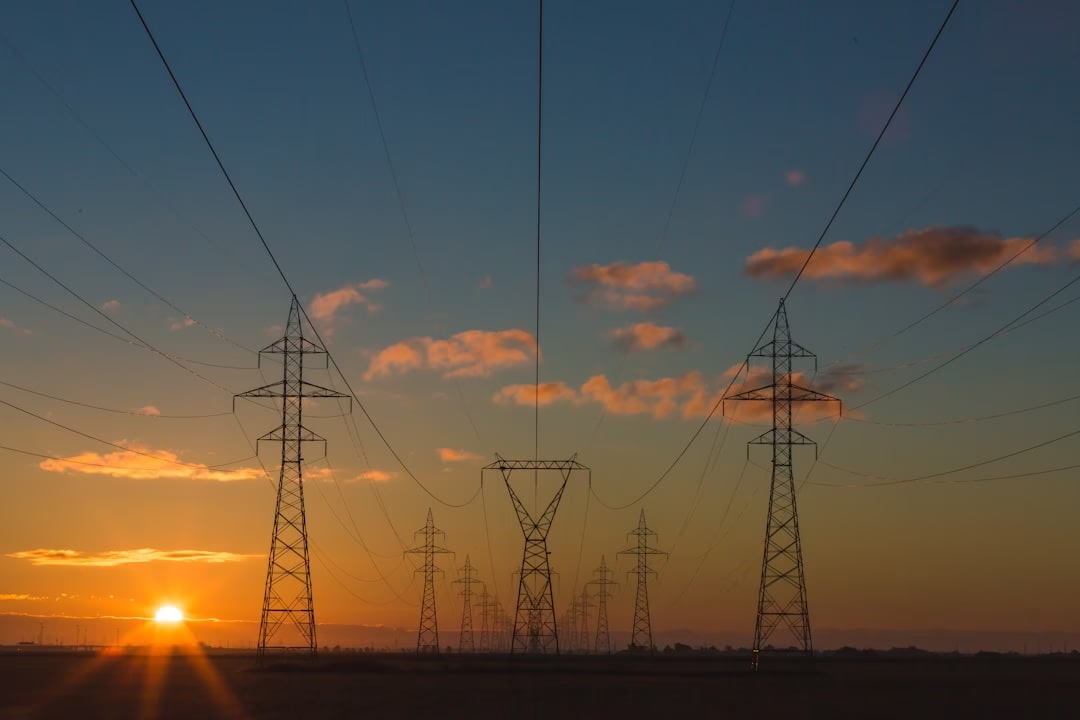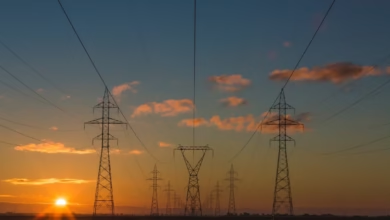Navigating the Future: Energy Policy and Regulation in the Age of Climate Change and Renewable Energy Innovations

As the world grapples with the pressing challenges of climate change and the urgent need for sustainable solutions, energy policy and regulation play a pivotal role in shaping our energy future. Governments across the globe are now tasked with balancing the demands of energy security, economic viability, and environmental responsibility. In this rapidly evolving landscape, the focus is shifting towards renewable energy sources, such as solar power, wind energy, and hydropower, while still navigating the complexities of fossil fuels and nuclear energy. This article delves into the current energy policy landscape, exploring how nations are adapting to climate imperatives and the integration of innovative technologies such as smart grids and energy storage systems to enhance energy efficiency.
The drive towards an energy transition is not just a matter of policy; it reflects a broader economic strategy that includes significant energy investment and research and development (R&D) into alternative energy sources like bioenergy and hydrogen energy. As global energy trends continue to evolve, understanding the dynamics of energy markets becomes essential, particularly in the context of energy exports and imports. This article will also highlight key innovations in energy regulation that are paving the way for a more resilient and efficient energy infrastructure, enabling a future where distributed energy resources and carbon capture technologies become mainstream. Join us as we explore the intricate interplay between energy policy, regulation, and innovation, and what it means for the future of energy management.
- 1. Current Energy Policy Landscape: Navigating Renewable Energy and Fossil Fuels in the Era of Climate Change
- 2. Innovations in Energy Regulation: Smart Grids, Energy Storage, and the Path to Energy Efficiency
1. Current Energy Policy Landscape: Navigating Renewable Energy and Fossil Fuels in the Era of Climate Change
The current energy policy landscape is increasingly shaped by the urgent need to address climate change while simultaneously navigating the complex dynamics of renewable energy and fossil fuels. Governments worldwide are implementing comprehensive energy policies that aim to balance these two aspects, fostering an energy transition that promotes sustainability and energy security.
In recent years, there has been a significant shift towards renewable energy sources such as solar power, wind energy, hydropower, and bioenergy. These green energy alternatives are not only crucial for reducing carbon emissions but also play a vital role in enhancing energy efficiency and sustainability. As global energy trends indicate a growing demand for cleaner energy, investments in energy storage technologies and smart grids have surged, enabling more efficient energy management and distribution across energy markets.
Fossil fuels, while still a major component of the global energy mix, are facing increasing scrutiny due to their environmental impact. Policymakers are exploring initiatives aimed at minimizing reliance on fossil fuels through measures such as carbon capture technologies and transitioning towards cleaner alternatives like nuclear energy and hydrogen energy. The integration of these innovations is essential for achieving energy efficiency and reducing the carbon footprint associated with energy consumption.
The emergence of electric vehicles has further influenced energy policy, driving demand for enhanced energy transportation infrastructure and the development of thermal energy systems. Governments are investing in energy R&D to facilitate the adoption of distributed energy resources and offshore energy projects, which can diversify energy imports and exports while maintaining energy security.
Ultimately, the interplay between renewable energy and fossil fuels will shape the future of energy economics and policy. As countries strive to meet their climate commitments, the focus will increasingly be on creating resilient energy systems that can adapt to changing market conditions and technological advancements. The path forward involves a collaborative approach that leverages energy innovations to ensure a sustainable and secure energy future for all.
Energy policy and regulation play a crucial role in shaping the landscape of energy management across the globe. As governments strive to balance economic growth, environmental sustainability, and energy security, they are increasingly focusing on integrating renewable energy sources into their energy markets. This shift is part of the broader energy transition aimed at reducing reliance on fossil fuels while promoting green energy alternatives like solar power, wind energy, and hydropower.
One significant aspect of modern energy policy is the emphasis on energy efficiency and energy storage solutions. By improving energy efficiency, governments can reduce overall energy consumption, which is vital for combating climate change. Energy storage technologies, including advanced battery systems and thermal energy storage, enable the effective management of energy supply and demand, facilitating a smoother integration of intermittent renewable sources into the grid.
In addition to energy efficiency, policies promoting carbon capture and hydrogen energy are gaining traction as innovative strategies to manage emissions from fossil fuels and nuclear energy. These initiatives not only help mitigate the impact of climate change but also enhance energy security by diversifying energy sources. Offshore energy developments, including wind farms and ocean thermal energy conversion, represent another frontier in energy investments that can drive economic growth while reducing the carbon footprint.
The rise of smart grids is transforming energy transportation and distribution. These advanced systems enable real-time monitoring and management of energy flows, optimizing the use of distributed energy resources and enhancing the resilience of energy systems. Furthermore, energy economics plays a significant role in guiding investments in renewable energy projects, ensuring that energy exports and imports align with national interests and global energy trends.
As electric vehicles become more prevalent, energy policy must adapt to accommodate the increased demand for electricity and the infrastructure required to support it. This includes fostering energy innovations that enhance the efficiency of energy markets and promote sustainable practices across various sectors.
In conclusion, effective energy policy and regulation are essential for navigating the complexities of today's energy landscape. By focusing on renewable energy, energy efficiency, and innovative technologies, governments can lead the charge toward a sustainable energy future that addresses climate change while fostering economic growth and energy security.
2. Innovations in Energy Regulation: Smart Grids, Energy Storage, and the Path to Energy Efficiency
Innovations in energy regulation are critical to managing the transition to a more sustainable energy future. As the world increasingly shifts from fossil fuels to renewable energy sources like solar power, wind energy, and hydropower, effective energy policies and regulations must evolve to accommodate these changes. One of the most significant advancements in this area is the development of smart grids, which enable more efficient energy distribution and management.
Smart grids leverage digital technology to enhance the reliability and efficiency of energy transportation. By integrating renewable energy sources and improving communication between energy producers and consumers, smart grids facilitate better energy management. This innovation not only supports the integration of distributed energy resources but also enhances energy security by reducing reliance on centralized fossil fuel-based power generation.
Energy storage technologies play a pivotal role in this transformation. Efficient energy storage solutions, such as batteries and pumped hydro storage, allow for the balancing of supply and demand, effectively mitigating the intermittent nature of renewable energy sources. By storing excess energy generated during peak production times, we can ensure a stable energy supply during periods of high demand or low generation. This capacity for energy storage is essential for achieving energy efficiency and maximizing the use of green energy.
The transition to energy-efficient systems also involves innovations in energy policy that encourage investment in energy R&D. Governments worldwide are implementing initiatives that promote the development of technologies such as carbon capture and hydrogen energy, aiming to lower emissions while still meeting energy demands. By fostering an environment conducive to energy innovations, policymakers can facilitate the energy transition, ultimately leading to a more sustainable energy economy.
Furthermore, the rise of electric vehicles (EVs) is reshaping energy markets and influencing energy consumption patterns. As EV adoption increases, there is a growing need for charging infrastructure that can seamlessly integrate with smart grids and renewable energy sources. This integration not only enhances energy efficiency but also supports climate change mitigation efforts by reducing greenhouse gas emissions associated with traditional fossil fuel-powered vehicles.
In summary, innovations in energy regulation, including the implementation of smart grids and advancements in energy storage, are crucial for navigating the complexities of energy management in today's dynamic landscape. By embracing these technologies and supporting forward-thinking energy policies, we can ensure a more resilient, efficient, and sustainable energy future that aligns with global energy trends and addresses the pressing challenges of climate change.
In conclusion, the evolving landscape of energy policy and regulation is critical for addressing the challenges posed by climate change and the urgent need for a sustainable energy transition. As we navigate the intricate balance between renewable energy and fossil fuels, it is essential for governments to implement initiatives that promote energy security and efficiency. Innovations in energy regulation, such as smart grids and energy storage technologies, are paving the way for more efficient energy markets and a diversified energy mix that includes hydropower, bioenergy, and nuclear energy.
The emphasis on carbon capture and the integration of electric vehicles further highlight the commitment to reducing carbon emissions while enhancing energy transportation and distribution. As global energy trends shift towards greener alternatives, investments in renewable energy sources like solar power and wind energy will play a crucial role in shaping the future of energy economics.
Ultimately, by fostering collaboration in energy R&D and supporting policies that encourage distributed energy solutions, governments can facilitate a robust energy transition that not only meets the demands of today but also secures a sustainable energy future. The collective effort towards these goals will not only help mitigate the impacts of climate change but will also strengthen energy exports and imports, ensuring a resilient energy framework for generations to come.





